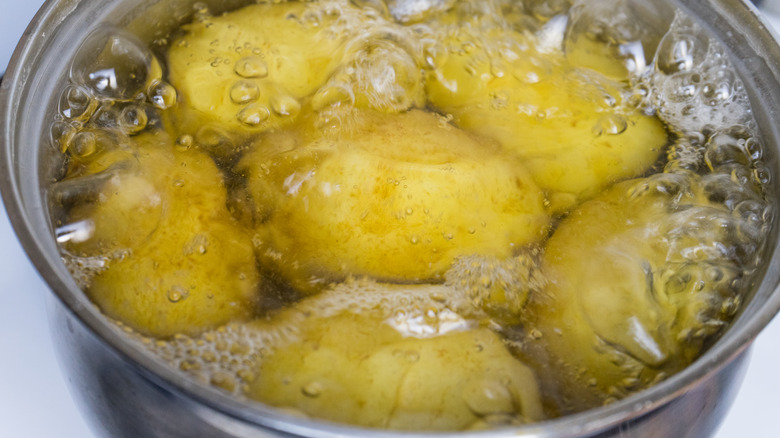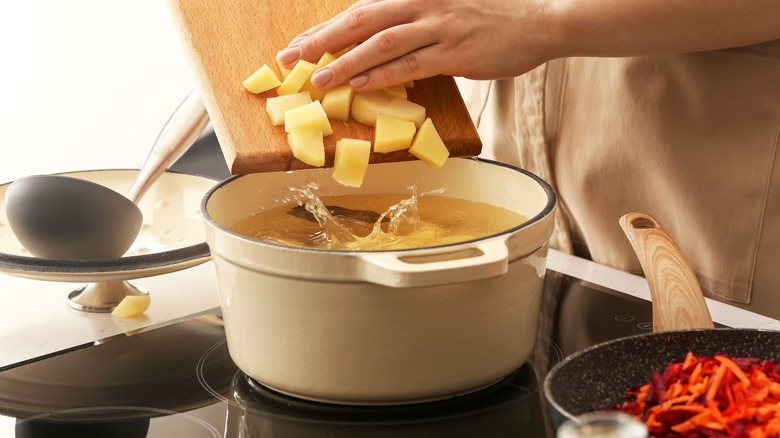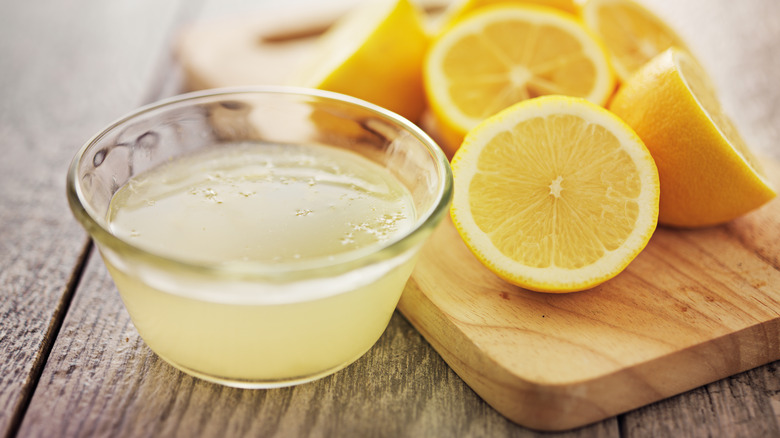The Reason Potatoes Sometimes Change Color While Cooking
It's a bit frustrating when you take the time to peel, chop, and boil potatoes, only to find ugly gray or brown spots on them after cooking. Were the spots there before? Are they rotten potatoes? Most likely not. Healthline explains that you'll know when a potato is rotten because it's mushy to the touch, and often there is an undeniable foul odor. Potatoes and some other vegetables experience a chemical reaction in the hot water, causing unsightly color changes; however, the reaction is caused by something wonderfully healthy in your potato.
In fact, potatoes are more nutritious than you might have thought. They contain a number of nutrients, including a high amount of fiber, which can help to control and lower cholesterol. Potatoes also have fabulous flavonoids that contain many health benefits, such as protecting our bodies from free radicals that lead to disease and also boosting our immune system, per WebMD. And it's those same flavonoids that react with the hot water and oxygen to create color changes.
What are anthoxanthins?
According to Food Science, anthoxanthins are pigmented flavonoids, usually a cream or white color, found in your potatoes, as well as some other veggies, such as onions and cauliflower. The only problem is that the flavonoids are also the culprit of your unattractive boiled potatoes. There's even a name for it: after cooking darkening, or ACD.
As Eat or Toss explains, a chemical reaction happens as the potatoes are heated which causes the pigment of the flavonoid in the potato to change color — usually brown or gray. Still, you may not notice the color change until after you take the potatoes out of the boiling water. This is because although the chemical change happens during the heating process, it's the oxygen that then comes in contact with the potatoes that triggers the reaction even more. And just like that, you now have dark spots on your boiled potatoes.
How to avoid dark spots
The good news is you can do something to prevent those annoying spots from showing up on your lovely potatoes. PEI Potato writes that you can avoid those dark spots altogether by adding some lemon juice to the water before boiling the potatoes. The acid from the lemon juice helps to stop the chemical reaction. You can also use vinegar when boiling potatoes for the same result.
Another helpful hint to keep the potatoes from getting dark spots is to keep them out of the refrigerator. Potatoes enjoy a cold, dry place, but not too cold. The frigid temperatures help the starch in the potatoes turn to sugar quickly, and the sugar leaves brown spots on the whites of the potatoes.
No matter how you slice it and cook it, the humble potato isn't quite as simple as it looks. Keep plenty around as a part of your healthy diet, and remember to store them properly, add a little acid to the water when boiling, and don't be afraid of a few harmless gray and brown spots.


